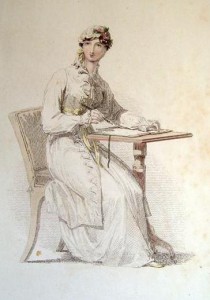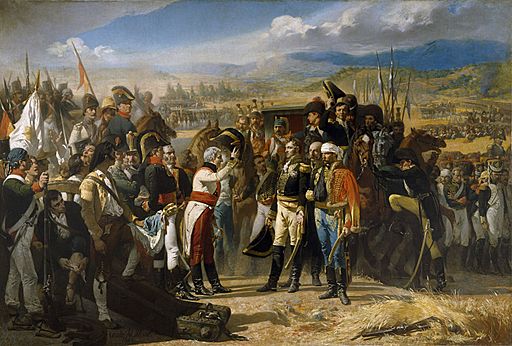During much of the Regency, England waged war with France–more specifically, with Napoleon Bonaparte who seemed bent on taking over the world. The Napoleonic War spanned roughly sixteen years–from 1799 to 1815 (including one-year of peace after which fighting broke out again.) Battles raged across much of Europe which meant thousands of men and boys of all ages (and yes, even a few women) left their homes to fight a war overseas to stop the “Corsican Monster.”
My son left his home, wife and infant daughter, and deployed to the Middle East for an eight-month tour of duty–his second in two years. We’ve been emailing him and corresponding with him via FB and instant messages, but I recently learned from his sweet wife how important physical letters and packages are to soldiers serving overseas. Those brave men and women who serve their country want desperately to connect with friends and family, to feel as if they are still a part of the life they left behind. Mail call becomes the highlight of the day, with each member serving in the armed forces anxiously awaiting a note or letter or package from home.
As a history nerd and historical romance author, I did some reading about rules and conventions of sending letters to soldiers during the Regency. Normally, a lady and a gentleman did not write a letter to one another unless they were married or engaged to be married. In Jane Austen’s Sense and Sensibility, Elinor assumes her sister and the rascally Willoughby must have an agreement akin to a formal engagement because they write letters to one another. Jane Fairfax’s letters to Frank Churchill was a clue they were engaged. Her frequent trips to the post office led people to assume they were corresponding and that they had a formal understanding.
 the letter. I’m sure the parents’ opinion of the gentleman’s character and merit as a prospective spouse for their daughter influenced their decision. They might allow letters between the young lady and the gentleman in question if they hoped for a good match, or if they trusted his intentions.
the letter. I’m sure the parents’ opinion of the gentleman’s character and merit as a prospective spouse for their daughter influenced their decision. They might allow letters between the young lady and the gentleman in question if they hoped for a good match, or if they trusted his intentions.
Letters to Soldiers in Regency England During the Napoleonic War posted first on http://donnahatchnovels.tumblr.com/

No comments:
Post a Comment